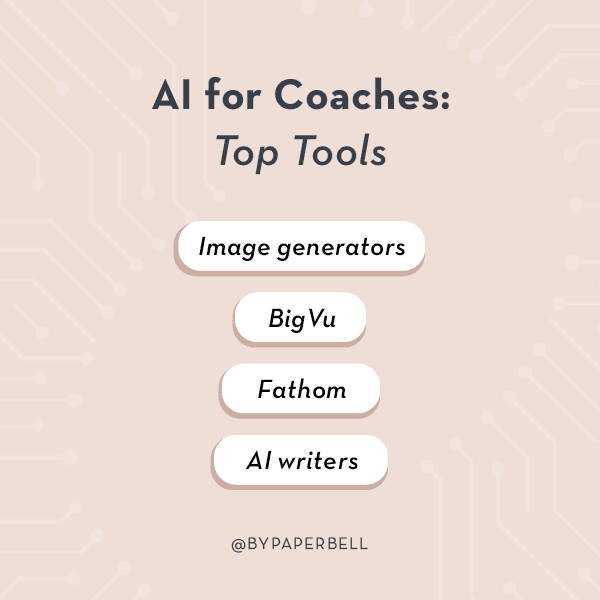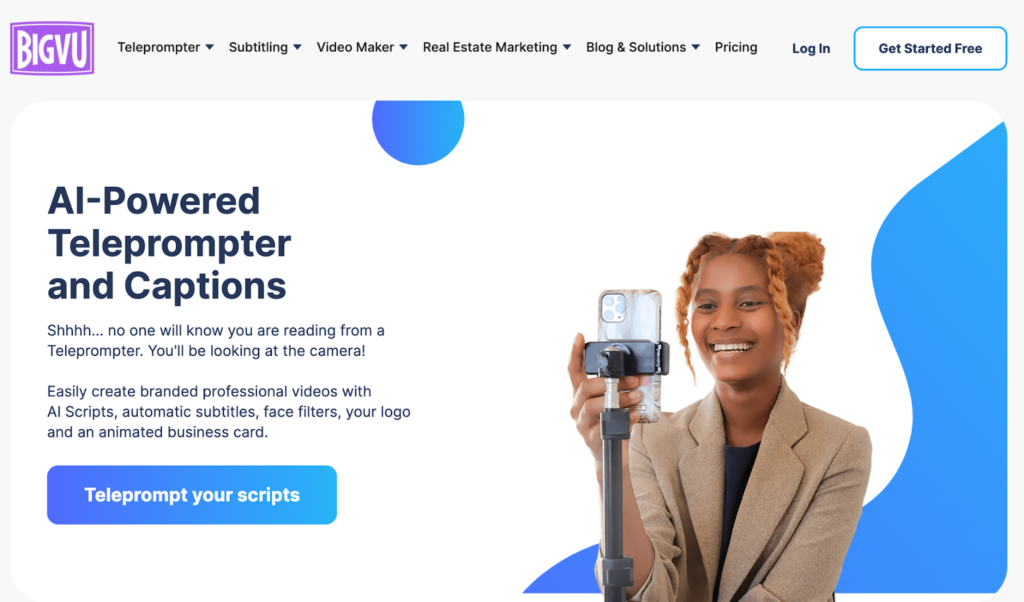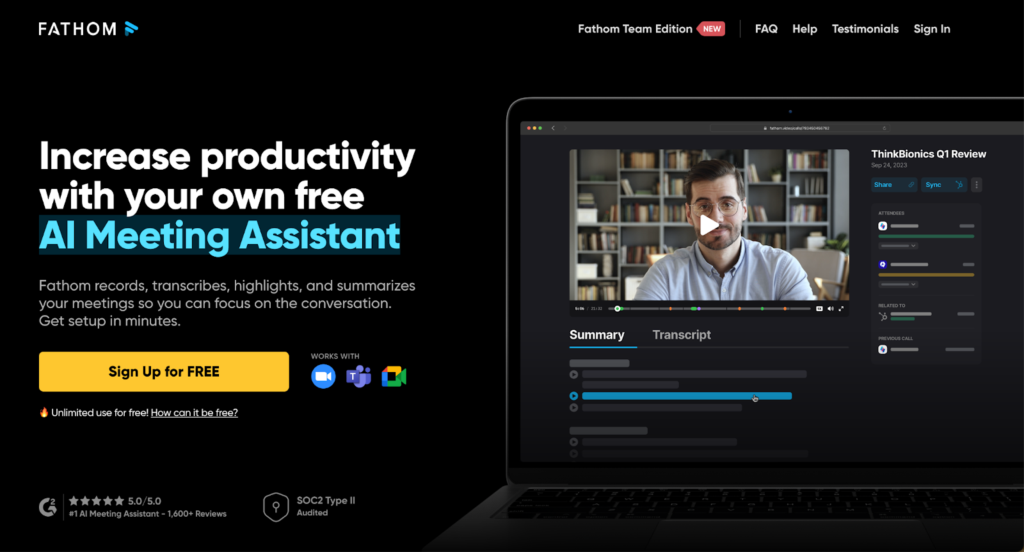Though machine learning can never replace the human touch, AI can come in handy to speed up some of your business processes and gain new insights.
Let’s explore the possibilities these new technological advancements provide and how they may revolutionize the coaching field. Read on to learn how you can leverage AI without compromising your unique connection with your clients.
In this guide on AI for coaches, we will explore:
- How to use AI for coaching
- Top AI tools for coaches
- Is AI coaching a threat to your business?
- Mastering AI: How to stay ahead
How to Use AI for Coaching
As a life coach, you’re always looking for ways to level up your game and help your clients achieve their goals.
One way to do that is through using artificial Intelligence in your practice.
But what exactly are AI coaching tools, and how can they benefit both you and your clients? Let’s dive in.
The Benefits of Using AI in Coaching
AI-powered tools can enhance the effectiveness of life coaches through:
- Data-driven insights: Analyzing client data like personality traits, habits, or past experiences helps coaches tailor their approach based on individual needs.
- Saving time: Automating repetitive tasks such as scheduling appointments or sending email reminders allows coaches to focus more on helping clients.
- Maintaining engagement: Providing personalized insights or recommendations keeps clients motivated throughout their journey.
Practical Examples of Incorporating AI into Your Coaching Practice
So, how will you leverage this innovation in your coaching practice?
To make the most out of these cutting-edge technologies, consider integrating some popular AI applications into your daily routine:
- Chatbots: Create an interactive chatbot or use existing chatbot software that provides instant support and guidance for common questions from potential or existing clients. This saves time and improves client satisfaction.
- Virtual assistants: A virtual assistant like Google Assistant, Amazon Alexa, or more advanced versions such as Motion can streamline administrative tasks such as managing schedules, setting reminders, and even tracking progress towards goals. For coaches looking to streamline administrative tasks while providing high-quality client support, considering the integration of AI personal assistants could be a breakthrough. With capabilities to manage schedules, set reminders, and track goals efficiently, these tools allow you to focus more on what truly matters—client interaction and tailor-made coaching strategies.
- Content personalization: Use machine learning algorithms to curate tailored resources based on clients’ unique interests, preferences, and needs. For example, recommend articles, podcasts, AI presentations, or videos that align with their goals and challenges.
- Emotion recognition: Leverage AI-powered emotion recognition tools to analyze clients’ facial expressions or voice tones during video calls. This can help you better understand their emotional state during the coaching process and adjust your approach accordingly.
Remember, the key is balancing AI’s capabilities and maintaining the human touch that makes life coaching so valuable.
By incorporating AI into your practice, you can deliver more individualized assistance to clients while streamlining your operations.
Pro tip: You can always rely on traditional automations, especially around onboarding your clients, if you use a coaching tool like Paperbell. You only set up the automation once, and it just works!
Ready to take advantage of AI in your coaching business? Check out these top AI tools for coaches designed specifically for you.
AI for Coaches: Top Tools

Based on new research, AI is expected to generate trillions of dollars by 2030 across various industries. So, embracing the power of AI coaching tools can provide you with a competitive edge in the future.
These innovative tools will assist you in various aspects of your practice, from personalized client support to efficient administrative tasks.
Let’s explore some of the AI tools that can revolutionize your coaching practice.
1. Image generators
Struggling to create high-quality images for your social media posts or blog articles?
You can now find dozens of image-generating tools to help you out! These tools work by taking a text input and generating a custom image. For instance, here is an image created from the prompt:
“Corporate art-style female life coach sitting at a desk”

Some examples of image-generating tools include:
Even ChatGPT is now generating high-quality images that you can use as YouTube thumbnails and blog featured images. Play around with these tools and the prompts you give them to see what’s possible. Usually, it takes a few prompts to refine an image to the one you’re looking for. You can also explore free tools like Freepik AI image generator first to give it a try without spending extra resources.
[ Read: ChatGPT as a Life Coach & Its Impact On Your Coaching Business ]
2. BigVu

If you want to speed up your video content production for TikTok or YouTube, check out BigVu.
It’s a teleprompter app allowing you to read your script from your phone while recording your video. Plus, it also comes with AI tools.
For example, it can:
- Record your voice and generate scripts from it that you can later edit
- Automatically generate subtitles based on your audio
- Trim your videos by selecting which words to start and end within your script
If you use AI-generated scripts, make sure to edit them first to the tone of voice that matches your personality. Instead of relying on AI to create content, use it to generate ideas and drafts to speed up your process.
3. Fathom

Put yourself in the shoes of your coaching client for a moment. You’re in an engaging coaching session, immersed in the process. Your head is buzzing with ideas days later, and you wish you could look back on the session to remember all the insights that came to you.
If only someone could take notes for you while you’re focused on your transformation…
That’s where Fathom comes in handy.
Fathom automatically records, transcribes, and summarizes your Zoom sessions so that you and your client can be fully present in the moment.
Offering this type of bonus to your clients can definitely increase the value of your coaching packages.
4. AI writers
Don’t have time to come up with new content? You can use AI writing tools to kickstart the process.
The most popular AI writing tool is ChatGPT. It has a free version that can generate ideas, email templates, or even coaching questions. You can also use it to create drafts for your:
- Social media posts
- Articles
- Landing page copy
- Headlines
- Blog outlines
- And blog post ideas
Other paid tools use the same language model and offer more features to make your content specific. For instance, Jasper can generate content and copy with fewer instructions than ChatGPT. Make sure to edit the AI output before publishing them.
Creative Ways to Use AI for Your Coaching Business
Artificial intelligence tools are extremely versatile. Besides writing, you can also use them to create new coaching tools, enhance your sessions, or develop curriculums for your educational materials. Here are a few examples of how you can do that.
- Create session summaries: Use AI tools to summarize your session transcripts so clients can review them later and deepen their insights.
- Craft self-awareness exercises: Develop a set of coaching tools and journaling prompts designed to reflect on the dominant area you’re working on with your client.
- Design new meditations: Use AI tools to create a guided meditation script tailored to the specific challenges your client is facing.
- Create assessments: Develop an assessment to help clients identify their strengths and areas for improvement related to a particular area in their lives and incorporate it into your coaching process.
- Gamify learning: Use AI to brainstorm coaching approaches with gamification elements, making the learning process more engaging and enjoyable for clients.
- Write workshop outlines: Generate a structured outline for a comprehensive workshop combining different exercises, writing prompts, and group discussions.
- Create a course structure: Develop a step-by-step curriculum for a new online course that you can record and sell to supplement your coaching income.
- Develop new coaching programs: Brainstorm ideas for new coaching packages and products that you can include in your offers.
- Create a list of content recommendations: Use AI tools to to deliver personalization at scale, offering tailored resources to clients based on their preferences, learning styles, and challenges. This could include articles, videos, or exercises complementing your coaching process.
- Analyze client information: Leverage natural language processing to analyze client feedback and session transcripts. This can help identify recurring themes, measure progress, and tailor future coaching sessions accordingly.
- Incorporate wellness monitoring: Integrate AI-driven wellness monitoring apps into your process to measure sleep quality, stress levels, and physical activity. This holistic approach can contribute to enhancing their well-being goals.
Is AI Coaching a Threat to Your Business?
It’s natural to wonder about how AI tools might impact your livelihood. Although AI does bring efficiency and faster data processing to the table, there are several reasons why human coaches are not going anywhere.
Here’s why your unique skills and personality will continue to be in high demand despite the rise of AI.
The Human Touch
No matter how sophisticated technology gets, nothing can replace a genuine human-to-human connection.
Clients seek out life coaches because they need someone who can empathize with their struggles and provide personalized guidance based on their unique experiences.
The value of a skilled life coach lies in their ability to build trust and rapport with clients – a skill that AI cannot replicate.
Nuanced Understanding
While AI algorithms can analyze data quickly, they cannot understand complex emotions or interpret subtle cues from clients’ body language or tone of voice.
Human coaches have an innate capacity for empathy and intuition, allowing them to pick up on these nuances and respond accordingly.
Creativity and Adaptability
Life coaching requires creative problem-solving skills and the flexibility to adapt strategies when circumstances change unexpectedly.
Coaches must also tailor their approach depending on each client’s personality type, learning style, and preferences – tasks that are difficult for even the most sophisticated AI systems.
Mastering AI: How to Stay Ahead
AI can provide a lot of value for coaches, but it can’t create the real connection and personalized guidance that a human professional can.
Instead of being scared of technology as a competition, you can simply embrace it as a helpful business tool.
By doing so, you can flourish in this ever-evolving world of life coaching and offer even better support to your clients.
Here’s how AI and coaching work hand in hand to provide unique support to your clients:
- Leverage technology: Rather than viewing tech advancements as threats, embrace them by integrating useful tools into your workflow (e.g., scheduling software or communication platforms).
- Increase specialization: Focus on developing expertise in a specific niche or area of coaching, which can help you stand out from AI-based solutions that offer more generalized support.
- Emphasize personal connection: Highlight the importance of human interaction and empathy in your marketing materials to remind potential clients why they should choose a human life coach over an AI coach.
You can also use AI tools to increase your productivity, allowing you to serve your clients on a deeper level.
Level Up Your Coaching Business with AI for Coaches
AI can take your coaching business to the next level by streamlining your operations and speeding up your content production flow. To make sure the admin side of your business runs smoothly as well, try Paperbell. It’s an all-in-one client management tool designed for coaches to handle your payments, contracts, schedule, and more. Grab your free account to explore all features.
FAQs about AI for Coaches
Will using AI make my coaching less authentic or personal?
Not at all! AI is your behind-the-scenes assistant, not your replacement. You still build relationships and provide human insight. AI just handles time-consuming tasks like creating call summaries so you can focus on coaching.
Is it ethical to use AI in my coaching practice?
Yes, when used transparently and responsibly. Use AI for ideation, content creation, and admin tasks – not for coaching decisions or handling sensitive client information. Many coaches openly share when they use AI tools.
Do I need to tell my clients I’m using AI tools?
Use your judgment. Mention it when AI directly impacts their experience (like AI transcription tools). You don’t need to announce every behind-the-scenes use. Err on the side of transparency for client-facing content.

Editor’s Note: This post was originally published in July 2023 and has since been updated for accuracy.









